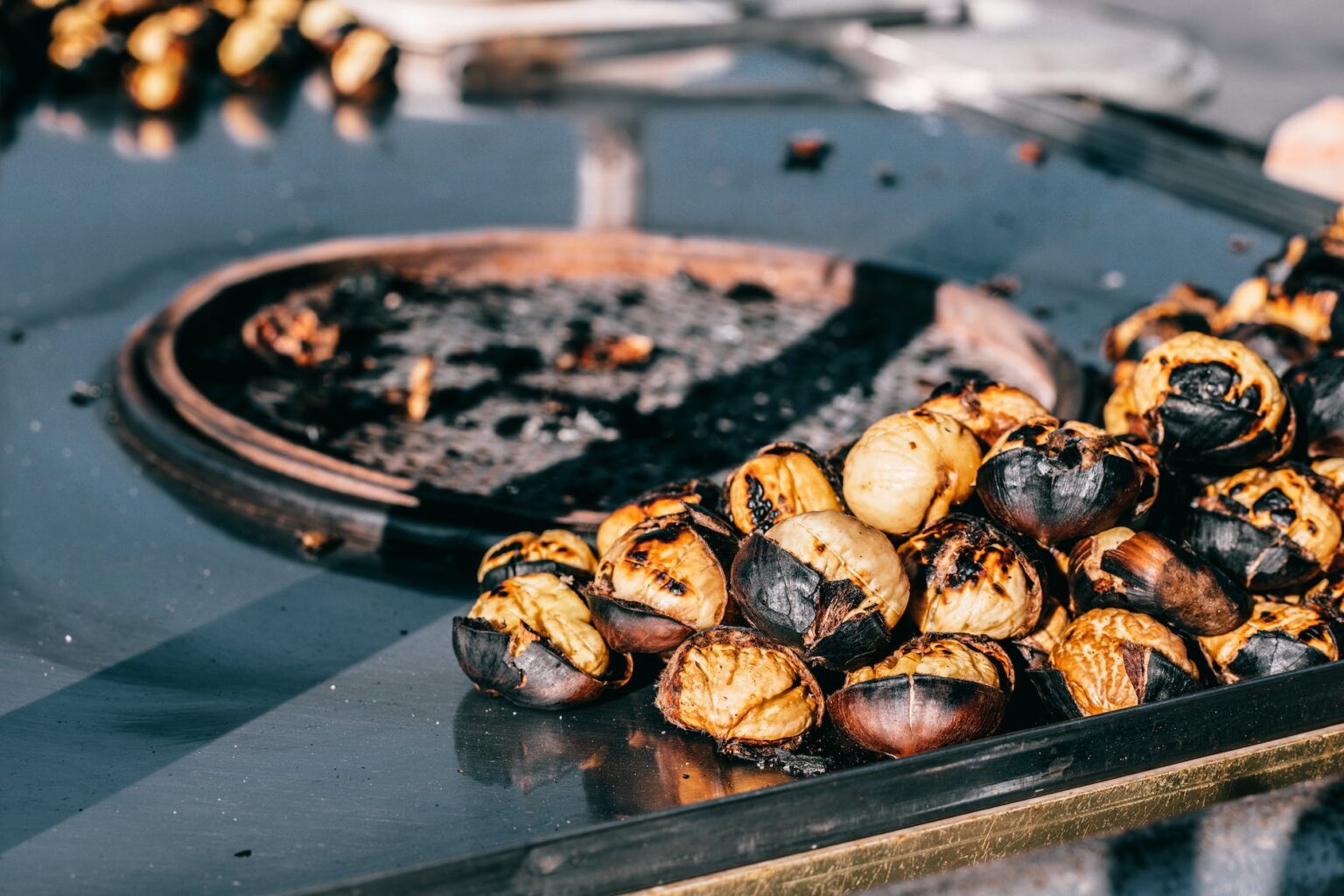Turkish Delights: Exploring the Culinary Wonders of Turkey
An introduction to the diverse and flavorful cuisine of Turkey, known for its rich history and unique blend of flavors from the Middle East, Mediterranean, and Central Asia.
Welcome to the world of Turkish cuisine, a delightful journey through the flavors and aromas of a land steeped in history. From the bustling streets of Istanbul to the tranquil shores of the Mediterranean, Turkey offers a culinary experience like no other. With its strategic location bridging Europe and Asia, Turkish cuisine is a melting pot of flavors, influenced by various cultures and traditions.
The cuisine of Turkey is as diverse as its landscapes, with each region boasting its own specialties and culinary traditions. In the Aegean coast, you’ll find an abundance of fresh seafood, grilled to perfection and served with a side of tangy olive oil and lemon. In Anatolia, the heartland of Turkey, hearty kebabs take center stage, showcasing the mastery of grilling techniques passed down through generations.
But it’s not just the regional specialties that make Turkish cuisine so remarkable. It’s the iconic dishes that have become synonymous with the country’s culinary heritage. Baklava, with its layers of flaky pastry filled with nuts and sweetened with honey or syrup, is a sweet sensation that has captivated taste buds around the world. Meze, a collection of small plates offering a variety of flavors and textures, is a true taste of variety, featuring stuffed grape leaves, creamy hummus, and smoky eggplant dishes.
And let’s not forget about Turkish tea, a cultural staple that is as much a part of daily life as it is a beverage. Served hot and strong, Turkish tea is often enjoyed with lively conversations, bringing people together over a shared love for this aromatic brew.
So join us on a culinary adventure through the vibrant streets and bustling markets of Turkey, where ancient traditions and modern innovations collide to create a truly unforgettable dining experience. From traditional dishes to contemporary twists, vegetarian options to meaty delights, there is something to satisfy every palate in the diverse and flavorful cuisine of Turkey.
Regional Specialties
When it comes to Turkish cuisine, each region has its own unique culinary traditions that showcase the diverse flavors and ingredients found throughout the country. From the coastal delights of the Aegean region to the hearty kebabs of Anatolia, exploring the regional specialties of Turkey is a culinary adventure like no other.
The Aegean coast is known for its abundance of fresh seafood, with dishes such as grilled octopus, stuffed mussels, and shrimp casserole taking center stage. The combination of the Mediterranean climate and the bountiful Aegean Sea creates a perfect environment for delicious seafood dishes that are bursting with flavor.
In Anatolia, the heartland of Turkey, kebabs reign supreme. From the succulent shish kebabs, marinated and grilled to perfection, to the flavorful doner kebabs, thinly sliced and served in warm bread, the kebab culture in Anatolia is a true delight for meat lovers. Each region within Anatolia has its own unique twist on kebabs, making it a must-try for any food enthusiast.
Traditional Turkish Dishes
When it comes to Turkish cuisine, there are certain dishes that have gained international fame and become synonymous with the country’s rich culinary heritage. These iconic dishes are a true reflection of the flavors and traditions that make Turkish cuisine so unique.
- Baklava: One cannot talk about Turkish desserts without mentioning baklava. This sweet sensation is made by layering thin sheets of flaky pastry with a mixture of nuts, such as pistachios or walnuts, and sweetening it with honey or syrup. The result is a mouthwatering treat that is loved by people all over the world.
- Kebabs: Turkish kebabs are a staple in the country’s cuisine and are known for their incredible flavors and tender meat. From the juicy shish kebabs, which are skewered and grilled to perfection, to the flavorful doner kebabs, made with thinly sliced meat cooked on a vertical rotisserie, these dishes showcase the mastery of grilling techniques.
- Meze: Meze refers to a variety of small plates that are typically served as appetizers or snacks. These dishes offer a wide array of flavors and textures, from the tangy stuffed grape leaves to the creamy hummus and the flavorful eggplant dishes. Meze is a great way to sample different flavors and experience the diversity of Turkish cuisine.
- Turkish Tea: No discussion about Turkish cuisine is complete without mentioning Turkish tea. Tea is an integral part of Turkish culture and traditions, and it is served hot and strong. It is often enjoyed with lively conversations and is a symbol of hospitality in the country.
These traditional Turkish dishes are just a glimpse into the culinary wonders that await you in Turkey. Whether you have a sweet tooth or a love for savory flavors, Turkish cuisine has something to offer for everyone. So, grab a plate and get ready to embark on a gastronomic adventure like no other.
Meze: A Taste of Variety
When it comes to Turkish cuisine, one cannot overlook the delightful array of small plates known as meze. These appetizers offer a tantalizing taste of variety, showcasing the diverse flavors and textures of Turkish cuisine. From stuffed grape leaves to creamy hummus and flavorful eggplant dishes, meze is a true reflection of the country’s culinary heritage.
One of the most popular meze dishes is dolma, which consists of grape leaves stuffed with a savory mixture of rice, herbs, and spices. The combination of tangy grape leaves and fragrant filling creates a burst of flavors in every bite. Another beloved meze is hummus, a creamy dip made from mashed chickpeas, tahini, garlic, and olive oil. Served with warm bread or crunchy vegetables, hummus is a crowd-pleaser that never fails to satisfy.
Eggplant dishes also take center stage in the world of meze. One such dish is baba ganoush, a smoky and velvety dip made from roasted eggplant, tahini, lemon juice, and garlic. It is often enjoyed with pita bread or as a side dish to complement grilled meats. Another eggplant favorite is imam bayildi, which translates to “the imam fainted.” Legend has it that this dish is so delicious that it caused the imam to swoon with pleasure. It consists of eggplant stuffed with onions, garlic, tomatoes, and herbs, then simmered in olive oil until tender.
Meze is not just about the individual dishes, but also about the communal experience of sharing and savoring these small plates with friends and family. It is a social tradition that encourages conversation, laughter, and the enjoyment of good food. So, the next time you find yourself in a Turkish restaurant or hosting a gathering, be sure to indulge in the delightful variety of meze and discover the true essence of Turkish cuisine.
Baklava: A Sweet Sensation
Baklava: A Sweet Sensation
Indulge in the layers of flaky pastry filled with nuts and sweetened with honey or syrup, creating a delectable dessert that is loved worldwide.
Turkish Tea: A Cultural Staple
When it comes to Turkish culture and traditions, one cannot overlook the significance of tea. Tea holds a special place in the hearts of Turkish people, and it has become a cultural staple that is deeply ingrained in their daily lives. In fact, Turkey is one of the largest consumers of tea in the world, and it is not uncommon to see locals enjoying a cup of tea at any time of the day.
In Turkey, tea is served hot and strong, typically in small tulip-shaped glasses. The brewing process involves steeping the tea leaves in a special double teapot called a “çaydanlık.” The lower pot is filled with boiling water, while the upper pot holds the loose tea leaves. As the water boils, steam rises and infuses the tea leaves, creating a rich and flavorful brew. The tea is then poured into the glasses, often accompanied by a sugar cube or two.
But tea in Turkey is more than just a beverage; it is a social ritual that brings people together. It is common to see friends and family gathering around a table, engaging in lively conversations while sipping on their tea. This tradition fosters a sense of community and hospitality, where tea acts as a catalyst for bonding and connection.
The importance of tea in Turkish culture extends beyond the home. Tea houses, known as “çay bahçesi,” are popular meeting spots where people gather to relax, play games, and enjoy a cup of tea. These vibrant spaces are filled with laughter, animated discussions, and the clinking of tea glasses, creating a lively atmosphere that reflects the warmth and friendliness of Turkish hospitality.
So, if you ever find yourself in Turkey, make sure to immerse yourself in the tea-drinking culture. Take a moment to savor the rich flavors, engage in conversations with locals, and experience firsthand the significance of tea as a cultural staple in this fascinating country.
Turkish Kebabs: Grilled Perfection
Turkish Kebabs: Grilled Perfection
Delve into the world of Turkish kebabs, from the tender and juicy shish kebabs to the flavorful doner kebabs, showcasing the mastery of grilling techniques.
Turkish cuisine is renowned for its delectable kebabs, which are a staple in the country’s culinary repertoire. The art of grilling is taken to new heights in Turkey, where kebabs are prepared with precision and care. From the succulent shish kebabs to the mouthwatering doner kebabs, each bite is a burst of flavor that will leave you craving for more.
The shish kebab, a classic Turkish dish, features marinated pieces of meat, such as lamb or chicken, skewered and grilled to perfection. The result is tender and juicy meat with a smoky charred flavor. Served with a side of aromatic rice pilaf and fresh salad, shish kebabs are a feast for the senses.
Another popular kebab variety is the doner kebab, which is made from layers of marinated meat, typically lamb or beef, stacked on a vertical rotisserie. Slowly roasted, the meat is thinly sliced and served in a warm pita bread or on a plate with accompaniments like yogurt, pickled vegetables, and tangy sauces. The combination of flavors and textures in a doner kebab is truly a delight for the taste buds.
Whether you’re enjoying a kebab at a street food stall, a traditional restaurant, or even in the comfort of your own home, the mastery of grilling techniques shines through in every bite. The smoky aroma, the succulent meat, and the explosion of flavors make Turkish kebabs a must-try culinary experience.
Modern Innovations
Uncover the contemporary twists and innovative approaches to Turkish cuisine, as chefs experiment with fusion flavors and reinvent traditional dishes. In recent years, Turkish cuisine has undergone a culinary revolution, embracing new techniques and ingredients to create exciting and unique dining experiences.
One of the key aspects of modern Turkish cuisine is the fusion of flavors from different culinary traditions. Chefs are combining traditional Turkish ingredients with international influences, resulting in dishes that are both familiar and unexpected. For example, you may find a traditional Turkish kebab infused with Asian spices or a classic Turkish dessert with a modern twist.
Another notable innovation in Turkish cuisine is the reinvention of traditional dishes. Chefs are taking iconic Turkish recipes and giving them a contemporary makeover, adding new ingredients or presenting them in a creative way. This allows for a fresh take on beloved dishes, appealing to both locals and international food enthusiasts.
Furthermore, there is a growing emphasis on using locally sourced and seasonal ingredients in modern Turkish cuisine. Chefs are embracing the farm-to-table movement, showcasing the abundance of fresh produce that Turkey has to offer. This not only ensures the highest quality of ingredients but also supports local farmers and promotes sustainability.
Overall, the modern innovations in Turkish cuisine have brought a new level of excitement and creativity to the dining scene. Whether you are a food lover looking for unique flavors or a culinary adventurer seeking new gastronomic experiences, exploring the contemporary twists and innovative approaches to Turkish cuisine is sure to leave you pleasantly surprised.
Vegetarian and Vegan Options
Explore the growing trend of vegetarian and vegan Turkish dishes, offering a delightful range of plant-based alternatives without compromising on taste.
Turkish cuisine is known for its diverse flavors and rich culinary traditions. While meat dishes like kebabs and grilled meats are popular, there is also a wide variety of vegetarian and vegan options available for those who prefer a plant-based diet.
One of the most beloved vegetarian dishes in Turkish cuisine is Imam Bayildi, which translates to “the imam fainted.” This dish consists of eggplants stuffed with a flavorful mixture of onions, tomatoes, garlic, and herbs, then baked until tender. It is a delicious and satisfying option for vegetarians and vegans alike.
Another popular vegetarian dish is Menemen, a Turkish-style scrambled eggs dish cooked with tomatoes, peppers, onions, and spices. It is often served with freshly baked bread and is a favorite for breakfast or brunch.
If you’re looking for something more substantial, you can try Mercimek Köftesi, which are vegan lentil and bulgur patties. These flavorful patties are made with cooked lentils, bulgur, onions, garlic, and a blend of spices. They are shaped into small balls or patties and can be served as a main course or as an appetizer.
For those with a sweet tooth, Turkish cuisine also offers a range of vegan desserts. One popular option is Aşure, a vegan pudding made with a mixture of grains, dried fruits, nuts, and spices. It is often prepared during religious holidays and is a comforting and nutritious dessert.
Whether you’re a vegetarian, vegan, or simply looking to explore new flavors, Turkish cuisine has something to offer. With its emphasis on fresh ingredients and bold flavors, you can enjoy a delightful range of plant-based alternatives without compromising on taste.
Food Festivals and Culinary Tours
Embark on a culinary adventure through Turkey’s vibrant food festivals and culinary tours, immersing yourself in the country’s gastronomic delights and cultural heritage. Turkey is known for its rich and diverse cuisine, and there is no better way to experience it than by attending food festivals and joining culinary tours.
Food festivals in Turkey are a celebration of the country’s culinary traditions and showcase a wide variety of dishes from different regions. From the International Istanbul Gastronomy Festival to the Antalya Culinary Festival, these events bring together renowned chefs, local producers, and food enthusiasts to indulge in a feast of flavors. You can sample traditional dishes, watch cooking demonstrations, and participate in workshops to learn the secrets of Turkish cooking.
For a more immersive experience, culinary tours offer a unique opportunity to explore the local food scene and learn about the cultural significance of Turkish cuisine. These tours take you on a journey through bustling markets, hidden food stalls, and family-run restaurants, where you can taste authentic dishes and interact with locals. From Istanbul’s vibrant street food scene to the culinary traditions of Cappadocia, each region has its own culinary treasures waiting to be discovered.
Whether you are a food lover, a culinary enthusiast, or simply curious about Turkish cuisine, food festivals and culinary tours are the perfect way to satisfy your taste buds and deepen your understanding of the country’s gastronomic delights and cultural heritage. So, pack your appetite and embark on a culinary adventure in Turkey!
Frequently Asked Questions
- What is Turkish cuisine known for?
Turkish cuisine is known for its diverse flavors and influences from the Middle East, Mediterranean, and Central Asia. It offers a unique blend of spices, herbs, and ingredients that create rich and flavorful dishes.
- What are some regional specialties in Turkish cuisine?
Turkey has a wide range of regional specialties. Some examples include the seafood delights of the Aegean coast, such as grilled fish and octopus, and the hearty kebabs of Anatolia, which are made with succulent meat and a variety of spices.
- What are traditional Turkish dishes?
Traditional Turkish dishes include baklava, a sweet pastry filled with nuts and sweetened with honey or syrup, kebabs, which are skewered and grilled meats, meze, a selection of small plates offering a variety of flavors, and Turkish tea, a cultural staple served hot and strong.
- What is meze?
Meze refers to a variety of small plates in Turkish cuisine. It offers a wide array of flavors and textures, including stuffed grape leaves, hummus, eggplant dishes, and more. Meze is often enjoyed as an appetizer or shared meal with friends and family.
- What is baklava?
Baklava is a popular Turkish dessert made of layers of flaky pastry filled with nuts, such as pistachios or walnuts, and sweetened with honey or syrup. It is a sweet sensation loved worldwide.
- Why is Turkish tea important in Turkish culture?
Turkish tea holds great cultural significance in Turkey. It is served hot and strong, often accompanied by lively conversations. Tea houses, known as “çay bahçesi,” are popular gathering places where people come together to socialize and enjoy a cup of tea.
- What are the different types of Turkish kebabs?
Turkish kebabs come in various forms, including shish kebabs, which are skewered and grilled chunks of meat, and doner kebabs, which consist of thinly sliced meat cooked on a vertical rotisserie. Both showcase the mastery of grilling techniques in Turkish cuisine.
- Are there vegetarian and vegan options in Turkish cuisine?
Absolutely! Turkish cuisine offers a growing variety of vegetarian and vegan options. From stuffed vegetables and lentil soups to flavorful salads and bean-based dishes, there are plenty of plant-based alternatives that don’t compromise on taste.
- Are there food festivals and culinary tours in Turkey?
Yes, Turkey is home to vibrant food festivals and culinary tours. These events allow visitors to immerse themselves in the country’s gastronomic delights and cultural heritage. From street food festivals to olive oil tastings, there’s something for every food lover.






